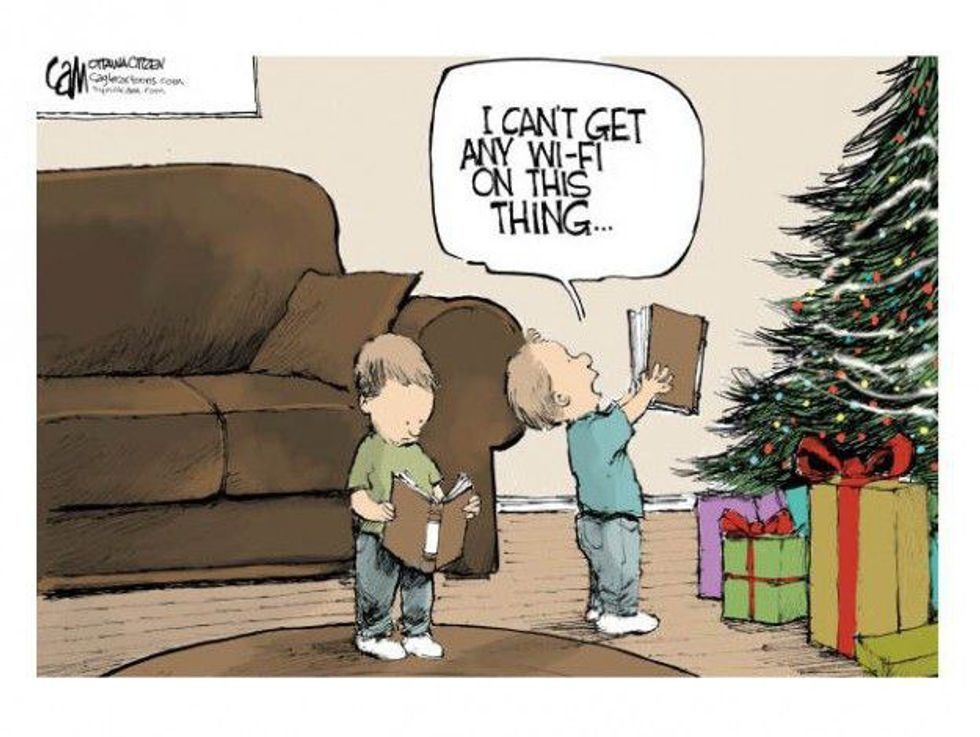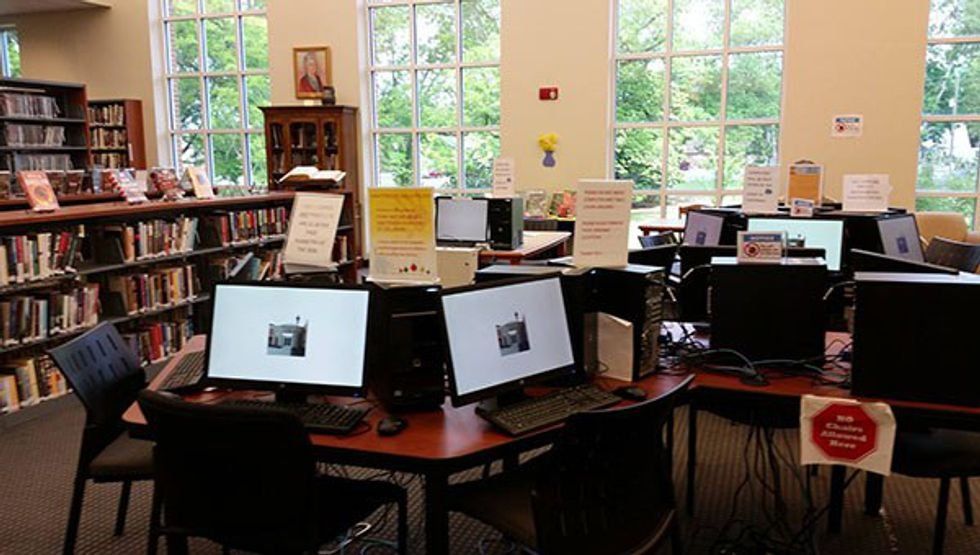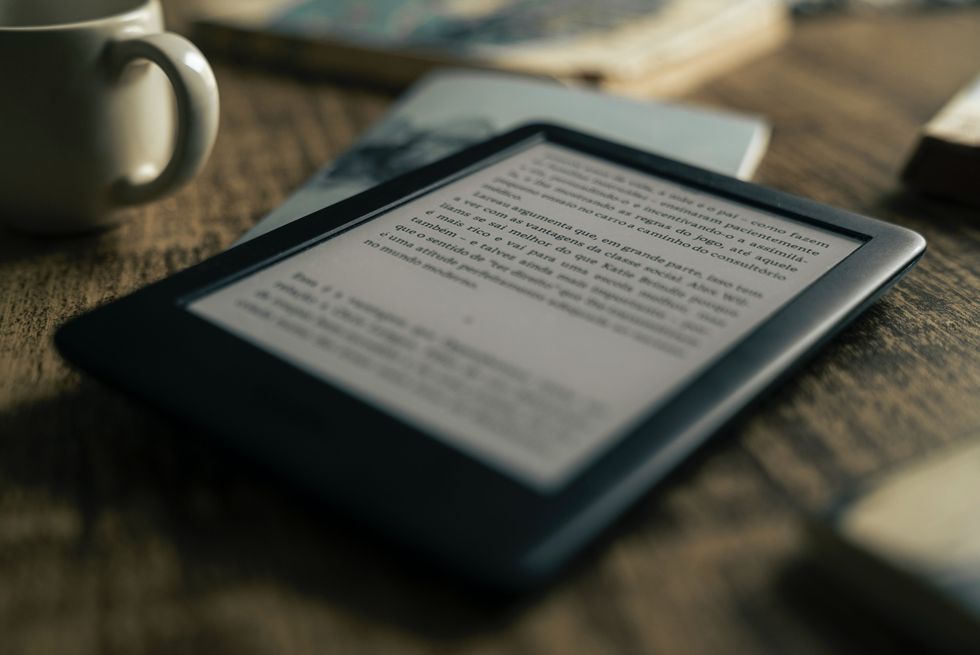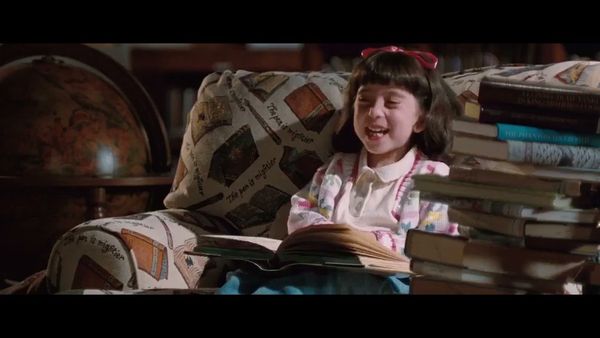In an age where the average five year old can work a smartphone better than me, I feel myself becoming the grumpy old person, rattling off about the “good ol’ days” when a book was the best toy ever and the library was the best playground a kid could ever hope for. When I get this way I remind myself of those highly exaggerated political comics that portray millennials holding books and asking “what are these,” or “how do I turn this on.” The truth is, I gladly embrace technology just as much as I express the feel of a good book in my hands.

People who are under the assumption that this is an either/or situation are likely the same people who believe that public libraries are now irrelevant. I do not think libraries are irrelevant, nor do I think they ever will be. Somehow, though, there is an ever growing assumption that because of the information and access to technology we currently have, we no longer have a need for libraries. Technology does not negate the use of libraries. They add to it, making the libraries more useful than ever before. Even as technology continues to rise, I believe that the public library has and always will remain the most important part of a town, particularly small towns.
The small town that I grew up in is even smaller than the town I currently occupy. When I think of the places I remember the most from childhood, I always have fond thoughts of the library. It essentially functioned as my babysitter when I was a child. When the weekends or summer days were too hot to play outside, my Mom would drop me off at the sweet, air-conditioned oasis where I could be surrounded by a day full of adventure.
I always picked out my books first, stacking them near a comfy spot where they would be within easy reach all day. If I grew tired of that, I found myself on the computers, playing around on MS Paint or playing The Oregon Trail. Without the library in my small town I would not be the person I am today, because I would not have had the early access to books or technology.
 Photo by Becca Tapert on Unsplash
Photo by Becca Tapert on UnsplashLike many in that small town we grew up in, we weren’t very well off, and the library provided a safe, quiet space where we had access to things that we otherwise wouldn’t have had. While I wandered through the books for endless entertainment, the library was providing other people with things that were very necessary. At the library, people could apply for jobs, look up information, or use the computers. While many people like to assume that everyone has access to technology and information, this is not the case. In many small, rural towns—like the one I grew up in, and the one I live in now—the library is the central hub for this.

In the town I live in now, Montevallo, the library provides just as much endless entertainment as the library in my hometown did as a child. I go to the library about twice a week, the librarians know me by name, and people in the library always greet me with silent nods in hellos of familiarity. In Montevallo, the Parnell Memorial Library provides the same services that my own hometown library provided. People can fill out job applications, find important information, print things, access to the internet, find references, or even just browse books for entertainment.
I have never entered an empty library. Even on its off days, it has people inside utilizing its services. So why, then, do people believe that libraries are becoming irrelevant? The answer is simple—nostalgia. When people think of libraries, they think of quiet spaces filled only with dusty old bookshelves and cranky librarians. They don’t like of libraries as a place that provides access to technology and other services, they only think only in the limited and thinly veiled terms of nostalgia. When the truth is, libraries are generally at the forefront of technological use.
This library also functions as a hub for the arts, with an art gallery in that constantly displays local artists, and a theater where the Montevallo Main Street Players put on plays. The library also provides movies nights and other activities for local children, as well as the occasional and very cheap book sell, so that people in the community have the opportunity to own their own books. Parnell Memorial Library rests between Montevallo Elementary School, Orr Park, and The Boys and Girls Club. With placement like that, the library is the center of an area that is brimming with life.
 Photo by @felipepelaquim on Unsplash
Photo by @felipepelaquim on UnsplashNot only do libraries have access to technology, they often provide services for understanding that technology. At the same time, libraries still have the stacks and stacks of books our nostalgia is familiar with—with many more now available on e-books. Libraries will only become irrelevant if we allow them to, if we allow our nostalgia to overlook the possibility for a library that is constantly developing and changing to always provide a public good.
For me, the biggest defense for the small town library isn’t even all the above information. Instead, my biggest defense for the library is that the library loves anyone and everyone. The small town public library doesn’t demand anything about your background or your beliefs. The library is the ultimate shared space, where anybody, no matter their limitations in life, can find a space that will help them.
- 6 Things I Miss About My Hometown ›
- Living In A Small Town Is A Blessing And A Curse, But Mostly A Blessing ›
- Perfect Spots To Hang Out In A Small Town ›
- In Defense Of The Small Town Library ›
- Surviving Library All-Nighters: The 5 Painful Stages | The Odyssey Online ›
- Discover 13 Reasons to Love Your Local Library | The Odyssey Online ›





















